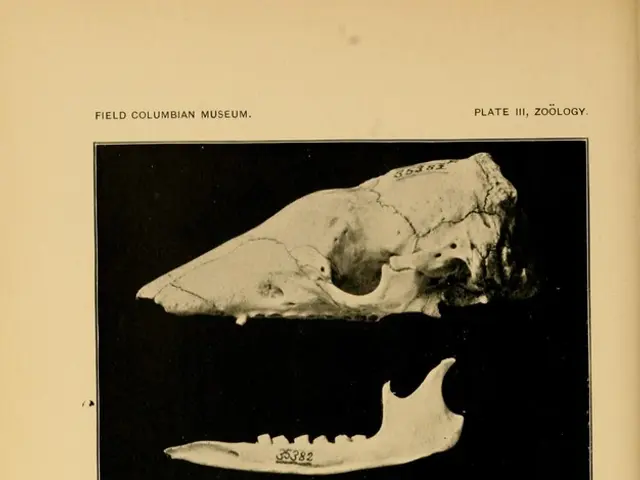Netflix's Trainwreck documentary chronicles the ascendancy and controversial downfall of the American Apparel corporation
In the compelling Netflix documentary "Trainwreck: The Cult of American Apparel," the precipitous decline of the once-iconic fashion brand is explored, with a focus on the internal mismanagement, scandal, and financial turmoil that plagued the company under the leadership of its founder, Dov Charney.
The documentary sheds light on a deeply problematic internal environment, where employees recounted abusive behaviour from Charney, including late-night phone calls where he would scream at staff, humiliate underperformers in front of hundreds on weekly "Fool of the Week" calls, and demand gruelling 36-hour shifts. The company's culture was chaotic and permissive, with reports of workplace misconduct in hallways and a "Playboy mansion for hipsters" atmosphere at Charney’s residence, where models and employees socialised. Multiple allegations of sexual harassment—including with underage workers—surfaced during Charney’s tenure, leading to lawsuits, negative publicity, and eventually a board investigation.
The board suspended and, in December 2014, fired Charney over "alleged misconduct and violations of company policy," including harassment and ethics breaches. Charney’s termination followed a period of intense scrutiny, during which he fought back with defamation lawsuits, but the damage to the brand’s reputation and internal morale was substantial. His replacement, Paula Schneider, was unable to reverse the company’s decline, which was by then deeply entrenched.
Years of mismanagement, combined with reputational harm, led to serious financial trouble. By 2014–2015, American Apparel was struggling to repay significant debts and consistently reported losses. The company warned investors it lacked sufficient cash to continue operations, raising "substantial doubt" about its survival. It filed for Chapter 11 bankruptcy in October 2015 and was eventually sold to Gildan Activewear in 2017. Management changes and attempted turnarounds came too late; the brand’s association with scandal, high costs of US manufacturing, and shifting consumer tastes compounded its challenges.
"Trainwreck: The Cult of American Apparel" uses interviews with former employees to illustrate the company’s descent from a cult-status, ethically-manufactured brand into dysfunction and collapse. It emphasises how Charney’s personal conduct and management style led to both legal battles and an unsustainable work culture, and how these internal issues—coupled with financial strain—doomed the company.
| Factor | Description | |-------------------------|-----------------------------------------------------------------------------| | Workplace Culture | Abusive management, sexual harassment, chaos[1][2][5] | | Leadership Crisis | Founder Dov Charney fired for misconduct, lawsuits, replacement too late[1][2]| | Financial Instability | Mounting debt, inability to repay loans, bankruptcy, eventual sale[2] | | Reputational Damage | Negative publicity from scandals, loss of consumer and investor trust[1][2] |
The fall of American Apparel, as depicted in "Trainwreck: The Cult of American Apparel," was not the result of a single misstep, but rather a cascade of management failures, ethical lapses, and financial distress that together unraveled the brand. After American Apparel's downfall, Dov Charney worked with Kanye West’s clothing brand, Yeezy. During the hiring process, applicants were required to submit a photo and were judged based on their appearance. The brand was known for its disco pants, athleisure basics, and promotional adverts featuring models that walked the line between tongue-in-cheek and softcore porn. The documentary reveals that a former employee admitted to the advertising practices being inappropriate, questioning if soft porn is fashion. The documentary portrays the decline of American Apparel's workplace culture, which was once attractive but soon became toxic and unappealing. The documentary, "Trainwreck: The Cult of American Apparel," shows Dov Charney using manipulative techniques to build a cult-like following, inspired by "The 48 Laws of Power." During American Apparel’s peak, it was considered one of the coolest stores in the world, but its reputation quickly deteriorated. Employees were often hired based on their physical appearance, with the interview process being more of a 'vibe check'. American Apparel’s advertising tactics were controversial, as they often broke advertising rules and were described as soft porn, with explicit imagery and provocative slogans. The first American Apparel store opened with an open call for employees that looked like a model lineup. The documentary "Trainwreck: The Cult of American Apparel" uncovers the truth behind the brand's rise and fall, and the controversies that led to its demise. American Apparel eventually filed for bankruptcy. The documentary features tell-all interviews with American Apparel insiders and former staff. The documentary, "Trainwreck: The Cult of American Apparel," ends with archival footage of Charney saying, "I’m not sorry about shit," but it implies that he should be sorry for many things. American Apparel was launched in 1989 and was supposed to represent the American dream. The company's workplace culture was fast-paced and sometimes toxic, arguably set by its founder, Dov Charney. Charney's workplace behaviour included shouting at employees, naming a "fool of the week," and facing allegations of sexual harassment and abuse, which he denies. American Apparel was a popular clothing brand known for its products made in America, sweatshop-free.
The documentary serves as a critique of the toxic work culture at American Apparel, which was marked by abusive management, sexual harassment, and a chaotic environment (lifestyle). The fashion brand, once famous for its ethically-manufactured clothing, transitioned into a space filled with reputational damage, financial instability, and legal battles, leading to its eventual decline (education-and-self-development). As the company's reputation deteriorated, it lost favor with consumers, investors, and the public, making a turnaround under new leadership nearly impossible (entertainment, general-news).
The collapse of American Apparel can be attributed to Dov Charney's management style, which favored manipulative techniques to create a cult-like following and controversial advertising practices that broke advertising rules and were often considered soft porn (fashion-and-beauty). The documentary also delves into the internal issues that plagued the company, such as workplace misconduct and high levels of employee turnover, all of which contributed to the brand's downfall (lifestyle, education-and-self-development).




